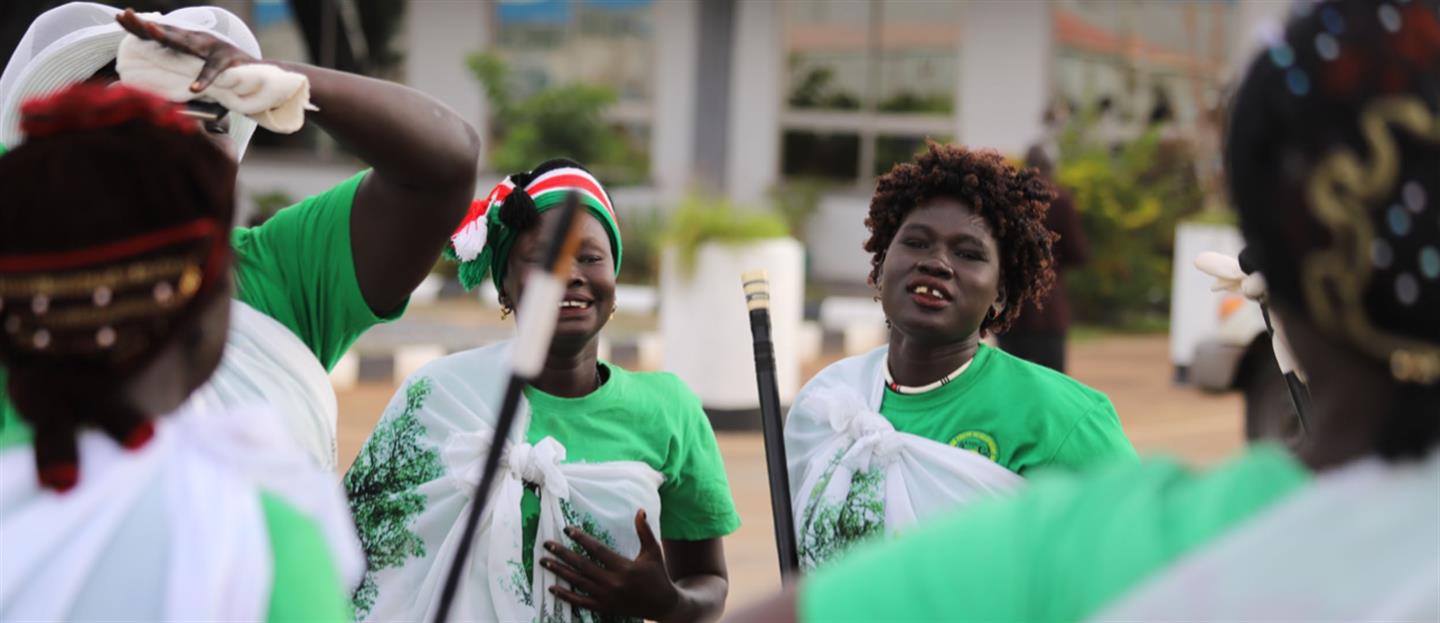
Women at the peace table
Women have been combatants, caregivers, peacemakers and humanitarians in conflict-affected South Sudan. Yet, when it comes to their participation in building peace in the country, their qualities and capabilities are largely unrecognised. Recently published research unveils the roles of women in peace-making processes and shows that including women in peace talks contributes to the likelihood of reaching and sustaining peace.
Women, peace and security
Across the globe, women have largely been excluded from peace processes. Studies show that, between 1990 and 2017, only 8% of negotiators and 5% of witnesses and signatories in all major peace processes were women. Despite the United Nations resolution on women, peace and security, that ‘reaffirms the important role of women in the prevention and resolution of conflicts, peace negotiations […and] peace building’ women’s active and influential participation in formal peace processes remains limited.
A complex path to peace
In South Sudan’s latest peace process in 2018, an increased number of women representatives had meaningful impact on the resulting agreement. While all those who signed on behalf of parties to the conflict were men, seven of the 17 civil society signatories were women – a level of representation that was hard-won. Among various outcomes, women’s groups broadened the focus of agreements and addressed the needs of refugees. At the same time, the increasingly strong voice of women resulted in the agreement to a 35% quota for women in high-level governmental positions.
While the ceasefire has largely held since the agreement was signed in 2018, the situation in the country is extremely fragile as progress on implementation has been slow.
Unity government
On Saturday February 22, the two main conflict actors, President Salva Kiir and the opposition leader Riek Machar, came together to form a transitional unity government, with Machar sworn in as the first vice-president. This marks the end of the twice extended ‘Pre-Transitional’ period– the time period for the parties to complete critical tasks including security reform.
The formation of the unity government is a crucial step forward, but it is not the last step in South Sudan’s journey towards sustainable peace. Some tasks remain outstanding, and parties will have to negotiate several contentious issues as a unity government, including outstanding security arrangement, the establishment of financial transparency mechanisms, and the implementation of accountability provisions.
Leveraging research and evidence
In these precarious times, women’s rights organisations and broader civil society in South Sudan share a main concern: durable and inclusive peace. Tired of the violence, running and hunger, they advocate for representatives who consider the safety needs of all citizens. Based on evidence and international guidelines – showing the pressing need for women’s participation in peace, security and governance structures – South Sudanese civil society are demanding the government to follow up on the 35% quota, and ensure women’s participation at all decision-making levels.
To advocate for long-term inclusion, the Born to Lead coalition, Oxfam and UN Women, commissioned South Sudanese researcher Esther Soma to investigate women’s roles in the South Sudanese peace processes leading to the agreements in 2005, 2015 and 2018. The research report and related policy brief demonstrate the impact of women’s inclusion and provide recommendations for political leaders, regional authorities such as IGAD and the African Union, donors and the international community. At the same time, the publications are crucial advocacy tools for the implementation of the 35% quota in the current formation of the unity government.
‘The beginning of a conversation’
As Riya Williams Yuyada, Executive Director of Crown the Woman, says it in her YouTube documentary Born to lead: 'This is the beginning of a conversation’. The 35% quota is not only about participation at the highest levels. It also aims to ensure women’s representation and meaningful participation in decision-making at all levels. And even broader, to debunk the persistent stereotypes on women.
The Oxfam Novib-SOMO strategic partnership ‘Towards a Worldwide Influencing Network’ invests in peaceful and just societies by strengthening the advocacy and influencing capacities of partners and connecting local partners to global networks. In South Sudan, the strategic partnership works with civil society organizations such as South Sudan Law Society (SSLS) and the Community Empowerment for Progress organization (CEPO).
Video insert
Video: Born to lead
A poignant and humorous short documentary on grassroot female leadership and female heroes. Influencer and human rights activist Riya Williams Yuyada interviews entrepreneurs, humanitarians, mothers and students who contradict persisting stereotypes about women in South Sudan.
Video
Op deze plek staat een YouTube video. YouTube plaatst cookies.
Als je die hier wilt bekijken, kies dan bij cookie-instellingen dat je social media cookies accepteert.
Of bekijk de video buiten deze site op YouTube.




